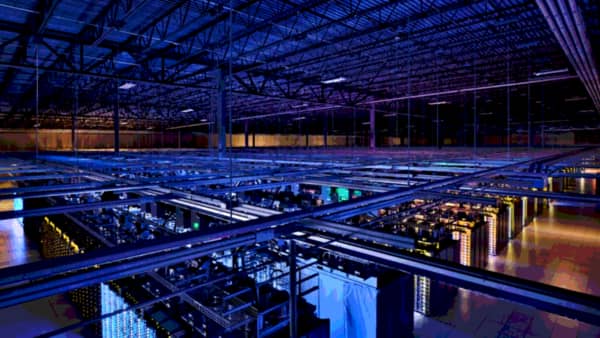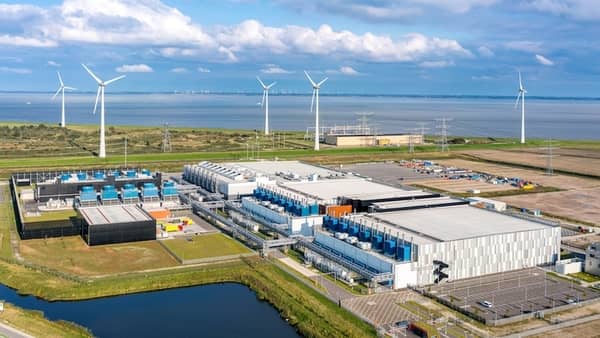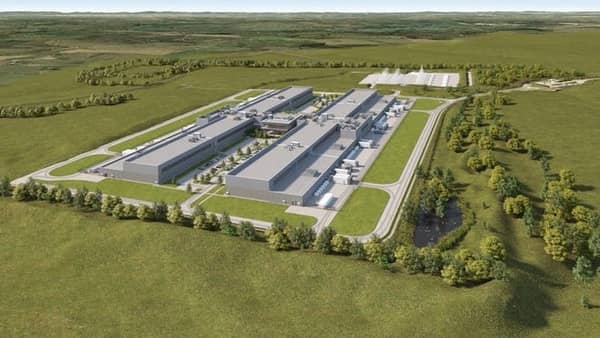
Will Data Centers Run out of Space?
February 24, 2021
What Is Data Archiving?
March 3, 2021Climate change is affecting everyone (whether you’re aware of it or not). It is also affecting certain industries including the data center industry. One of the main reasons for this is the greenhouse gas the world is producing.
Over the next ten years, we will see increase temperatures of 2.5 to 10 degrees, natural disasters will be greater and more powerful, we will also experience more droughts, and more. How will this affect data center operations in the United States and around the world.

Why Are Data Centers Crucial to Modern Business?
Before we dive into the effects that climate change can have on data centers we should discuss the reason data centers are crucial to modern business, our everyday life, and why the climate change affects you as well. The world revolves around digital communication, which can be everything including texts and instant messages, phone calls, email, and video conferencing (like Zoom calls). Streaming services, YouTube videos, podcasts, are also considered digital communication. Browsing the web is also part of digital communication.
Anything that requires sending and retrieving data requires data centers. The cloud is just another form of a specific data center operation. We have been relying on digital communication and data sharing for quite some time now, and it was grown even more so during global pandemic. More people are using streaming services, ordering take out and groceries on restaurant and grocery store applications.
And if you really think about it, most businesses (modern and traditional) have some form of a website. All of these companies and industries as a whole need data centers to operate. Data centers are important to the way we all communicate in 2021, and will continue as more technological innovations are introduced to the world.

What Issues Can Data Centers Expect within the Next Decade?
The world revolves around data sending and retrieving, which is why the data center industry needs to prepare for the effects of climate change. One of the effects of climate change is increased temperatures, unpredictable weather, and an increase of natural
disasters. This can be detrimental to data centers because it increases the risk of grid supply failures. Data centers have been prepared to deal with energy grid failure currently, but the many current backup generators are only intended for short power cuts and not for long periods of time. Currently and especially in the future, data centers will need to invest in other temporary power solutions because of climate change.
Data center disaster recovery plans are crucial, but because of these natural disasters, data centers will also need to improve on their disaster recovery plans. Disaster recovery is important because a company’s data is one of the most valuable aspects of a company’s business. If a company loses certain information it could have harmful effects on business. Threats can come in many different forms including cyber criminals.
Data center security is vital, but even the greatest security systems can fail which is another reason a recovery plan is important. And with the expected future climate change issues data centers will need to be more prepared than ever before for disasters.
The rising of temperatures will require data centers to look into new and innovative cooling technology. Many data center facilities continue to use traditional cooling systems but may need to utilize newer technology driven cooling systems when the effects of climate change become even more apparent. Artificial intelligence is already being used by some of the larger companies in its operations. Google has been using artificial intelligence to optimize its data centers including cooling.

Many more data centers will need to utilize these kinds of technology to keep up with the rising temperatures due to climate change. Another option can be building data centers in even colder areas or collocating in facilities in areas where the temperature is colder. Regardless, data centers will need to look for new ways to cool data center facilities as the effects of climate change worsen.
Data Centers Need to Become More Sustainable
Data center operations could be directly impacted and affected by climate change, but like many industries, the data center industry is also contributing to the problem. Data centers use a tremendous amount of energy and continue to be one of the industries that has a large carbon footprint.
Data centers consume about 3% of the entire global electricity supply. The industry is also responsible for 2% of total greenhouse gas emissions. The data center industry needs to do its part to be more sustainable.
Some of the biggest technology companies are already leading the way making sure their data centers are becoming more sustainable. Microsoft, Google, Facebook, and Amazon are goals for sustainable and this includes their data center operations. All of
these companies have future goals set to become 100% renewable by a specific year.
To be fair, although data centers are still using a tremendous amount of energy and other resources, the industry as a whole is more efficient than ever before. A study reported by Science Magazine shows that data computing by data centers increased an incredible 550 percent between 2010 and 2018 but showed a minimal 6 percent increase in energy consumed.
The world’s increased usage in connected devices in addition to advancements in technology make the increase in data computing no surprise. But many technological advancements are also helping data centers become more energy efficient and sustainable.
Conclusion
Data centers are already working towards sustainability, but the effects of climate change are just around the corner. Data centers have a lot think about and do in order to be prepared for the effects of climate change. Climate change will affect everyone and every industry.
But not only do data centers need to be prepared for the impact of climate change—the industry as a whole needs to help change and reverse global warming. The first step in this fight against climate change is sustainability.
Featured Image Credit: youmatter.world
